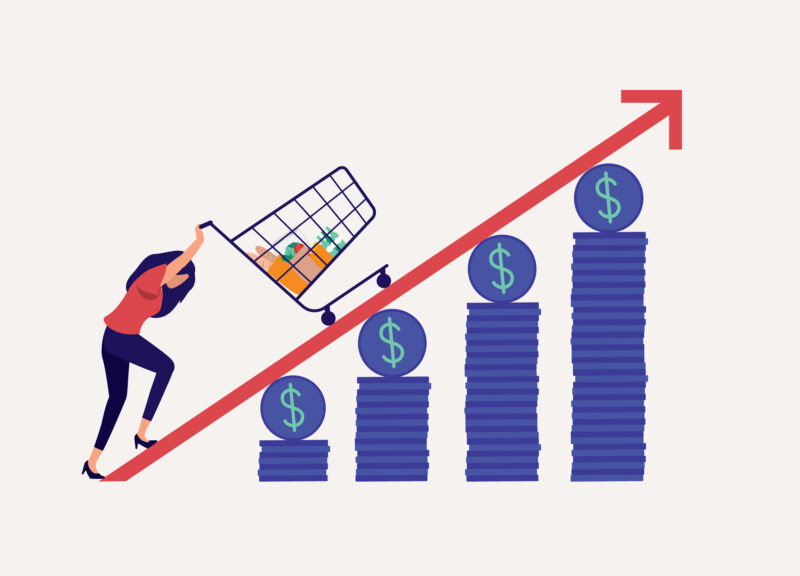By Felicia Nwosu
As the economic hardship bites harder in Nigeria, the incessant rise in prices of goods has become a major concern in consumers’ purchasing decisions and consumption patterns.
During a market survey, MARKETING EDGE ONTV observed that the sky-rocketing prices of different consumer brands have altered premiumisation and brand loyalty among Nigerians.
Bumi Akin, a public relations professional and consumer who shared her experience with MARKETING EDGE, said the impact of the skyrocketing prices has drastically shifted both her consumption and purchasing pattern in the face of current reality.
“The moment the price of dollars started going up, I changed my purchasing pattern, I stopped buying imported items, and instead I moved to cheaper brands with the same value or quality.
“I think sachetisation is the way to go and I commend makers of consumer goods products, especially Promasidor Nigeria, for introducing this into the economy years back. Right now, people’s purchasing power cannot buy as they used to and they still need those items. Lots of brands are also innovating with the introduction of 3-in-one value products to ease the financial burdens on consumers,” she said.
She expressed displeasure over the rate at which some brands are leveraging both shrink-inflation and skimpflation to sustain production and its adverse effect on the consumers.
“But the one I don’t like is the rate at which some brands are reducing their product quantity, especially biscuits and beverages. I don’t think that is good enough shrinking and reducing quality of their products, although that is expected in an inflation-driven economy.
Mrs. Ona Shittu, another consumer and an educationalist, explained that she employs scale of preference approach in her purchasing pattern as well as switch to other well-known trusted brands.
“With the current situation of the prices of consumer goods in the market, I have actually switched to products that I have always known to be cheap.
“In terms of shrink-inflation, I feel that those who reduce the quantity of their products are considerate of consumers in terms of quality, and I still patronize them despite reduction. I still go for them because I trust the quality, and I have always used them, especially children-related products for safety purposes,’ she said.
Isaiah Ade, a financial expert in one of the leading banks in Nigeria, revealed that the inflationary period has taught him to be smart in his spending by optimizing his purchasing power choices.
“These days I only buy what I need because of the incessant rise in prices. I don’t like switching brands, so I buy even more of atba time.”
He observed that shrink-inflation has also gone beyond consumer goods to telecom and other sectors of the economy as well.
“It is not only in consumer goods sector, even telecom operators are reducing the quantity of their data. You will find out that the quantity of data these days does not commensurate with the number of the days or months specified in the plan.”







Comment
No comments found.